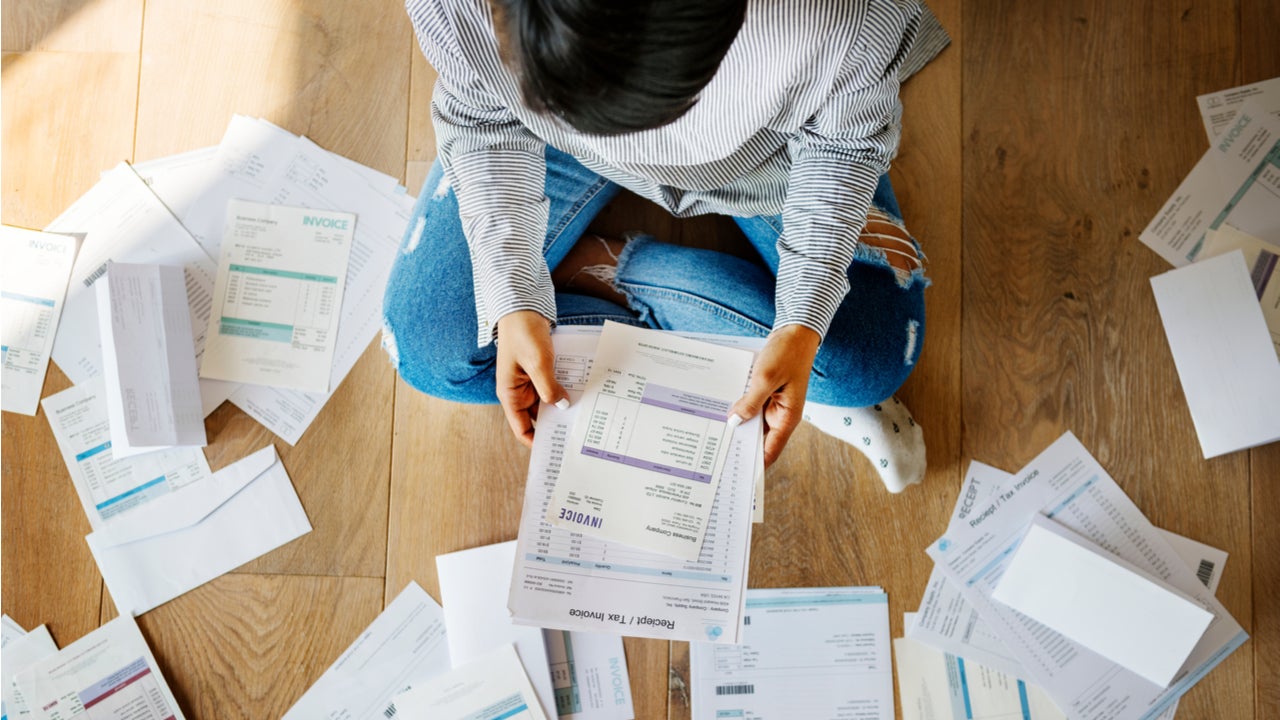Debt consolidation vs. debt settlement: Which is right for you?




Key takeaways
- Debt consolidation combines multiple debts into one with a single monthly payment and a potentially lower interest rate, but you’ll typically need good credit to qualify.
- Debt settlement involves negotiating with your creditors to reduce how much you owe, but it could hurt your credit score and take months or years.
- Both strategies have their advantages and disadvantages.
Having more debt than you can comfortably repay — whether it’s high-interest credit card debt or loans — can be stressful. This is especially true when you don’t have a solid plan for tackling that debt and struggle to make your monthly payments on time.
If you’re feeling overwhelmed, debt consolidation or debt settlement could help. Both options can make it easier to manage your debts. Debt consolidation rolls multiple loans or credit cards into one monthly payment, while debt settlement reduces the total amount owed.
Learn more about these two debt repayment strategies and which one might be right for you.
What is debt consolidation?
Debt consolidation involves combining debts — like credit cards or unsecured personal loans — into a new loan or credit line. This strategy reduces the number of creditors you owe and can make it easier to manage your monthly payments.
Consolidation restructures your current debts but doesn’t get rid of them. You’ll still owe the total amount, but you’ll make a single monthly payment rather than multiple. This can simplify the debt repayment process.
Depending on how you go about it, you could save money by consolidating your debts. This depends on several factors, including how much you owe, the new debt’s repayment term, any fees and the interest rate you get.
“For someone with multiple credit cards, for example, which carry rates upwards of 25%, consolidating with a personal loan at 10% could result in significant savings,” says Leslie H. Tayne, Esq., a financial attorney at Tayne Law Group, P.C. “However, the longer the loan repayment term, the less savings they’ll see overall. It really depends on the individual and their particular circumstances.”
Many major banks, credit unions and online lenders offer debt consolidation. Be careful as some companies market their programs as “debt consolidation” when they’re something different — like debt settlement.
Types of debt consolidation
You can consolidate debt in several ways, including:
- 401(k) loan: If you have a 401(k), you may be able to take out a loan — depending on the plan’s terms. Generally, you can borrow up to 50 percent of your account balance or $10,000, whichever is greater (up to a certain amount). A 401(k) loan doesn’t require a credit check but may have a short repayment period. You must also repay the loan in full if you leave your job.
- Balance transfer credit card: This lets you move the balance from one credit card to another, ideally with a lower interest rate. Depending on your credit, you could get a 0 percent APR introductory rate. You won’t owe any interest if you make on-time payments and pay off the full balance before the introductory period ends.
- Cash-out refinance: A cash-out refinance replaces your existing mortgage with a new, larger loan based on your home equity. You’ll receive the difference in a lump-sum payment that you can use for debt consolidation. The new loan will come with its own terms and rates.
- Debt consolidation loan: This type of personal loan is either secured (meaning you need collateral to get funds) or unsecured (meaning you don’t). It comes with its own interest rate, fees and repayment terms. You’ll usually need to pay a fixed amount each month until the debt is paid off.
- Home equity line of credit (HELOC): A HELOC is a revolving line of credit secured by your home equity. You can draw from your equity up to a certain limit and for a set time. You’ll then need to pay back what you borrowed plus interest. HELOC rates are variable, meaning your monthly payment amount could change.
- Home equity loan: If you own property and have substantial home equity, you could take out a home equity loan. With this, you’ll receive a lump-sum payment you can use to pay off your other debts. This type of loan generally comes with a lower fixed interest rate than other options. However, it’s secured by your property. You risk losing your home if you don’t pay back what you owe — plus interest.
What is debt settlement?
Debt settlement is the process of negotiating with your creditors to try to reduce how much you owe. You can do this yourself via DIY debt settlement or through a debt settlement company — sometimes called a “debt relief” or “debt adjusting” company.
According to Tayne, a successful debt settlement could reduce your total amount owed by 40 to 50 percent.
Keep in mind that your creditors aren’t required to settle your debts. This means there are no guarantees that it’ll work. However, they may be more willing to do so if the alternative is them not receiving any payment at all.
Debt settlement comes with several risks, including:
- Damaged credit: Most debt settlement companies will encourage you to stop making payments while they try to settle your debt. This can lead to late fees and missed payments showing up on your credit reports.
- Expensive: If you go through a company, you may face hefty fees — sometimes up to 25 percent of the debt that’s resolved. These fees could outweigh the benefits of reducing your debts.
- Lengthy process: Debt settlement could take months or even years to complete, which can be stressful if you need more immediate relief.
- Taxable income: Any forgiven debt over $600 is considered taxable. Say your creditors agree to reduce your $10,000 debt to $6,000. You’ll owe taxes on the $4,000 that was forgiven.
If a creditor does agree to settle — or forgive — a debt, they may require you to make a lump-sum payment for the remaining balance. This can be tricky if you’re already on a tight budget and can’t save large sums of money.
Types of debt settlement
There are two main types of debt settlement:
- Debt settlement company: A professional will negotiate with your creditors. The company may require you to start making monthly payments in a secured account during the debt settlement process. If a creditor agrees to settle your debt, that account will be used to pay off your remaining balance — sometimes in a lump sum.
- DIY debt settlement: You negotiate with your creditors to settle your debts. This can take time, persistence and patience. Be prepared to be upfront about your financial situation, what you need and why.
A debt settlement company may advise you to stop making payments on the debts you’re trying to settle. Debt settlement is generally a last resort effort where your credit is already suffering because you haven’t been able to make payments. If you aren’t able to make payments, your credit score will drop.
Before going this route, review the company’s reputation, fees and terms carefully. They should be upfront about their process. A legitimate company also won’t charge any fees until after settling a debt. Nor will they claim to guarantee success.
Key differences of debt consolidation vs. debt settlement
Here are the key differences between debt consolidation and debt settlement:
- Costs: After a successful debt settlement, you may need to make a lump-sum payment on the remaining balance. With debt consolidation, you generally have more time to repay your debt. Professional debt settlement can be expensive. Debt consolidation may also come with certain fees — like origination or balance transfer — but you could pay less overall.
- Credit score impact: Debt settlement can hurt your credit, although your credit is likely already poor by the time debt settlement in an option. Any missed payments could appear on your credit reports if you don’t pay your debts during negotiations. Settled debts may also appear as a negative mark on your reports for up to seven years. Debt consolidation, meanwhile, could improve your score as you pay down your debts on time and lower your credit utilization.
- Debt reduction: Debt consolidation doesn’t reduce your debt load. Unlike a successful debt settlement, it restructures your debts by combining them into one single loan or credit line with a simplified monthly payment. You’ll still need to pay the full amount owed.
- Guarantees: Settlement isn’t guaranteed. Your creditors aren’t required to forgive your debts.
- Taxes: Debt settlement comes with tax implications. If successful, you may owe taxes on any forgiven amount over $600.
When to consider debt consolidation
You may want to consider debt consolidation if you:
- Have good credit or better and qualify for the lowest interest rates.
- Have multiple creditors and want to simplify your monthly payments.
- Have steady income and can make the new loan or credit line’s monthly payments.
- Qualify for a balance transfer card and can reliably pay it off during the low APR promotional period.
- Qualify for a loan with a shorter repayment period that ultimately costs less than your other debts.
“As a mortgage lender, I would recommend debt consolidation as it is going to be a legitimate restructuring of your debt,” says Corey Vandenberg, Mortgage Loan Officer at Lake State Mortgage. “You are not paying less than you owe, but you are paying it better (at a lower interest rate for example) and one payment instead of many.”
When to consider debt settlement
Debt settlement may be the better option if:
- You have enough cash on hand to pay a lump sum required by the debt settlement.
- Your credit score has already taken a major hit.
- You’re already significantly behind on payments and are facing the possibility of getting sued.
- You’re confident in your ability to negotiate with your creditors and can avoid the hefty fees debt settlement companies charge or are willing to hire a company to help you.
- You’re facing significant financial hardship — like a lost job — and can no longer keep up with your debts.
“Debt settlement can be a good option for someone who is struggling with a large amount of debt and can’t afford to make full monthly payments even if they were to restructure their debt,” adds Tayne. “It can provide quicker financial relief and serve as an alternative to filing for bankruptcy.”
The bottom line
Debt consolidation and debt settlement can lighten your debt load, but they do so in different ways. Whereas debt consolidation involves rolling multiple debts into one, debt settlement can reduce what you owe. Each process has its advantages and disadvantages, so weigh your options carefully.
If you’re not sure which is best for you, a financial advisor or credit counselor may be able to help. Whatever you decide, the key is to get ahead of the situation as soon as possible. This can help protect you from taking on additional debt when you’re trying to get rid of what you owe.
Why we ask for feedback Your feedback helps us improve our content and services. It takes less than a minute to complete.
Your responses are anonymous and will only be used for improving our website.




